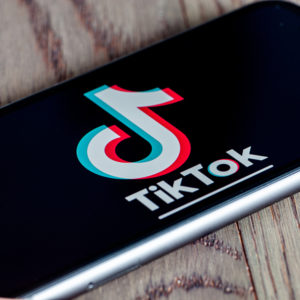I had no idea what TikTok was until now.
It turns out that this ancillary social media app of people of all ages and walks of life, with millions of followers worldwide, seems to stick in the craw of President Trump.
So, when I saw the news that national security officials in the administration want to ban the app due to potential Chinese state-sponsored espionage and cybersecurity threats, I laughed.
Yes, it’s nothing but laughable. To my understanding, TikTok is a video content-driven social media platform that combines the brevity of the defunct platform, Vine, crossed with YouTube, Twitter and Instagram.
On the surface, and in a greater societal context, TikTok is another app that serves as a passing trend that, in some years, will exceed its presence as a viable platform for social communication and interactions on content. Really, just a playground for young people.
Secretary of State Mike Pompeo appeared on Fox News, speaking with anchor Laura Ingraham, where he hinted that he would ban many Chinese-owned apps from platforms like the Apple App Store and Google Play.
According to intelligence firm Sensor Tower, the app has more than 2 billion downloads across the world, with 46 million installs in the United States. This is unprecedented, including the numbers that show user acquisition and adoption of the platform as one of the “big social media” apps that affect national and international conversations.
It’s also ironic. Trump issued an executive order at the end of May that reportedly “protects” against censorship on social media platforms.
The order attempts to claw back on the legal protections such platforms maintain, considering a so-called and unfounded systemic bias against conservatives, Trump supporters, and voices that are considered hateful and controversial.
The implementation of the executive order has presented grounding for the president and his allies to restrict and limit speech and expression that they don’t like. While the events don’t directly relate, there are many broad commonalities between banning a social media app and the so-called efforts to support free speech on the internet.
Trump signed the executive order May 28. Soon, on June 2, the Center for Democracy & Technology filed a federal lawsuit against the administration for the executive order’s aggressiveness in the potential of censoring legal speech like porn, gay dating apps, and other annoying platforms like Snapchat.
Fundamentally, the debates on the status of TikTok intersect along the lines of national security and freedom of expression.
We cannot allow for the attempts to ban an app — one with millions of U.S. users, built by a company with American executives, domestic technical infrastructure, and extensive U.S. operations — when there is very little demonstrable evidence that shows red flags and potential security risks for everyday Americans.
Private companies and individuals can express themselves how they see fit, within the confides of the law, and barring intervention from the executive branch and Congress.
This means that the moderation of content on social media platforms is a form of free speech with protections of the First Amendment.
Brookings Institution fellow Niam Yaraghi noted that “fortunately, these protections are so strong, that even the most powerful and most litigious man on earth has not been able to sue any of the media that he argues to be ‘fake’ and ‘enemy of the people.’”
Here, TikTok is perceived as some hidden enemy preparing to take down America from pointless loops and lip-synching battles. That’s complete bull.
I don’t diminish the potential national security threats posed by China. Seriously, I don’t. But, let’s be honest. Why are we wasting time and taxpayer money on banning a popular social media app that the president clearly doesn’t like?
Pull it together people. We have the continuing COVID-19 pandemic to focus on. What about the recession caused by the pandemic with Trump’s misguided protectionist economic policy?
Or, we can draw attention to the fact that the United States and China can’t exist without each other.

